BALTIMORE, MD – The Maryland Zoo in Baltimore is excited to announce the hatching of five African penguin chicks – the first to hatch during the 2018-2019 breeding season at Penguin Coast. The chicks all hatched in mid-October.
“We are thrilled to continue our breeding success every year, and so far have hatched out another five chicks to kick off the beginning of our breeding season,” said Jen Kottyan, avian collection and conservation manager. “We anticipate we’ll have more chicks hatch soon.”
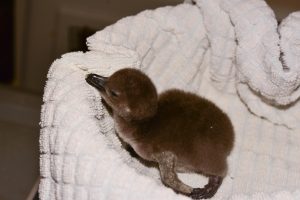
Penguin breeding recommendations are made by the Association of Zoos and Aquariums’ (AZA) African Penguin Species Survival Plan (SSP). Breeding season for the African penguins at Penguin Coast begins in mid-September and lasts until the end of February, mimicking the temperatures of the fall breeding season for these endangered birds in their native South Africa. Penguin chicks will hatch 38-42 days after the eggs are laid. Zoo keepers monitor development of the eggs by candling them about a week after they are laid to see if they are fertile and developing. The eggs are then placed back with the parents. “With African penguins, both the male and the female take turns incubating the eggs,” said Kottyan. “Once the eggs hatch, parents take turns caring for their offspring; they each protect, feed, and keep the chick warm for 2-3 days and then switch off.”
At Penguin Coast, chicks stay with their parents for about three weeks after they hatch and are fed regurgitated fish from their parents. During this time, zoo keepers and vets keep a close eye on the development of the chicks, weighing and measuring them every few days until they’re three weeks old to make sure that the parents are properly caring for each chick. When a chick is three-weeks-old, the keepers remove it from the nest, and start to teach the chick that they are the source of food. This step is critical as it will allow staff to provide long term care for the birds including daily feeding, regular health exams and both routine and emergency medical care.
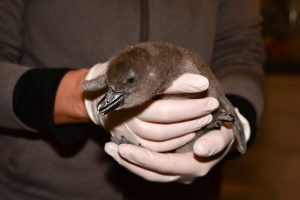
When they hatch, chicks are about the size of a chicken egg. Covered in dark gray downy feathers, the chicks grow fast. They reach their full size, about six pounds, around three months of age. At the same time, their fluffy down is finished being replaced by waterproof feathers.
While the penguin chicks are not viewable to the public, juvenile and adult penguins can be seen at Penguin Coast. Penguin Feeding programs are offered twice daily, free with admission, and behind-the-scenes Penguin Coast Tours and Penguin Encounters are offered throughout the year for an additional fee.
The Maryland Zoo has been a leader in breeding African penguins for close to 50 years, winning the prestigious Edward H. Bean Award for the “African Penguin Long-term Propagation Program” from the AZA in 1996.
Last spring, the Zoo welcomed its 1000th African penguin chick. The chick was named “Millie” – short for millennium or 1,000 years – by popular vote. The Maryland Zoo has the largest colony of African penguins in North America with 90 birds, including the newest hatchlings.
For updates on the chicks in the coming weeks, please visit our Facebook page.

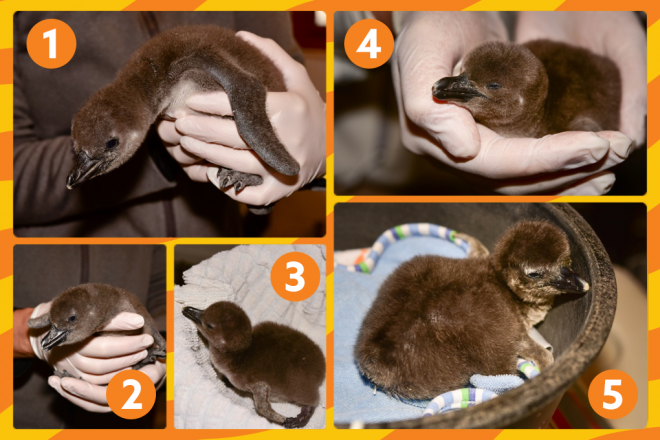
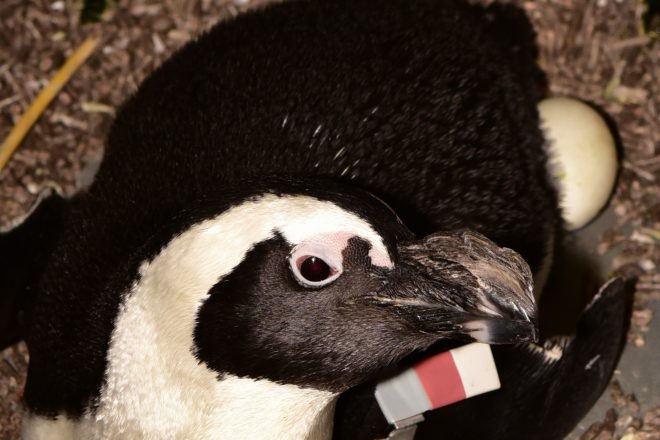
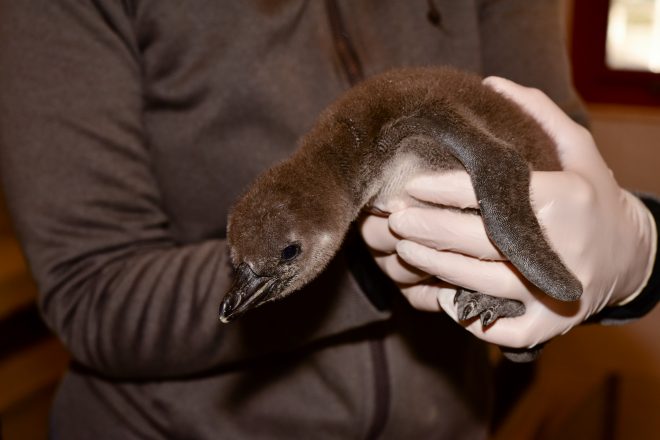
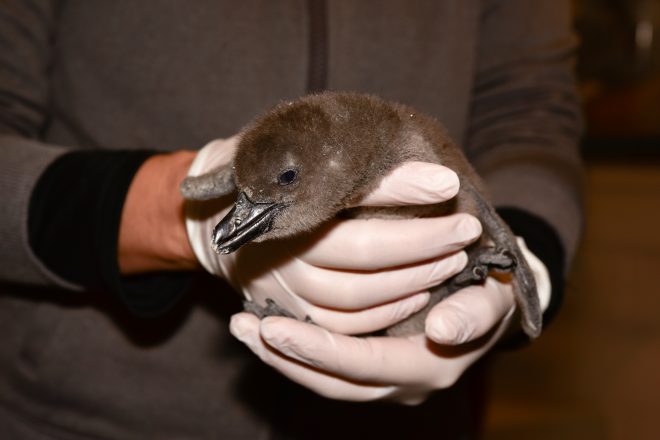
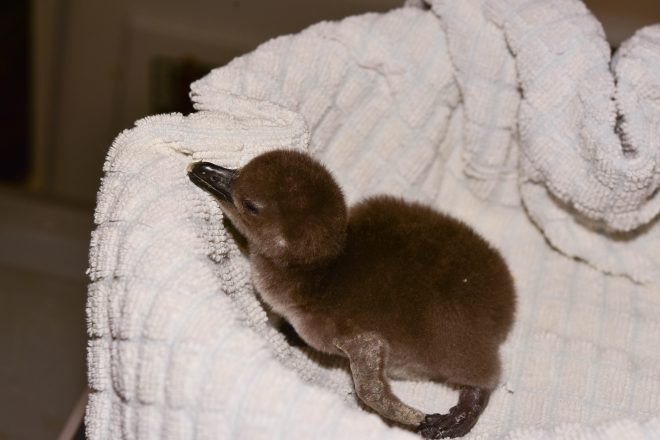
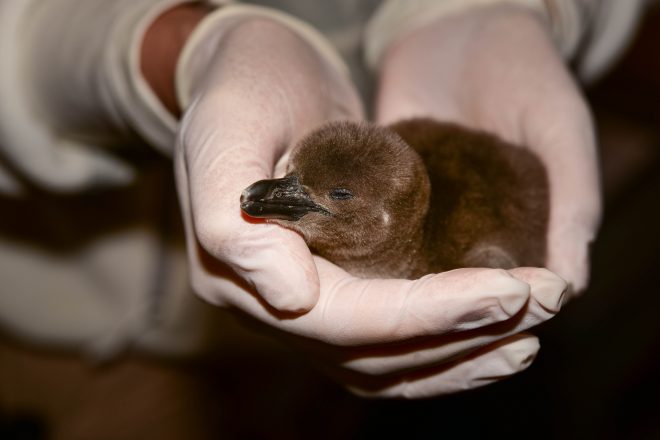
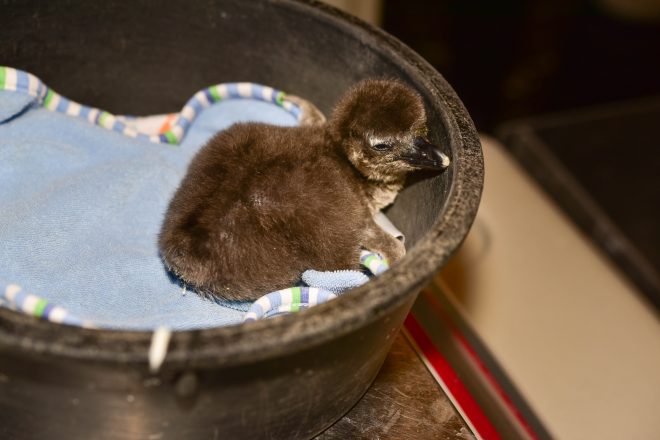
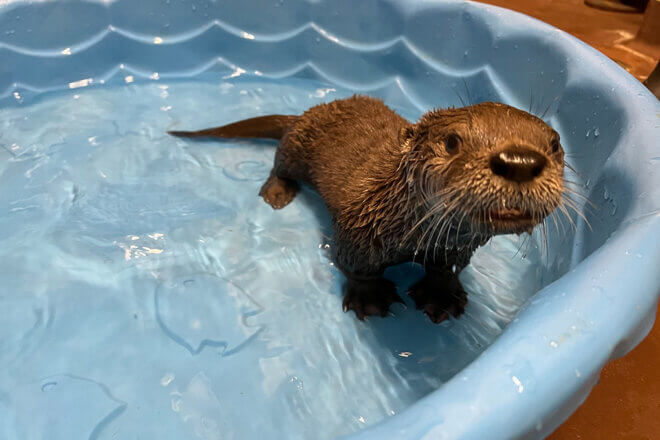
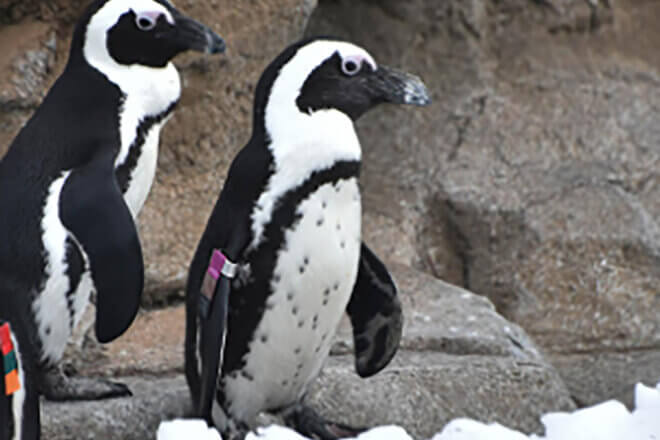
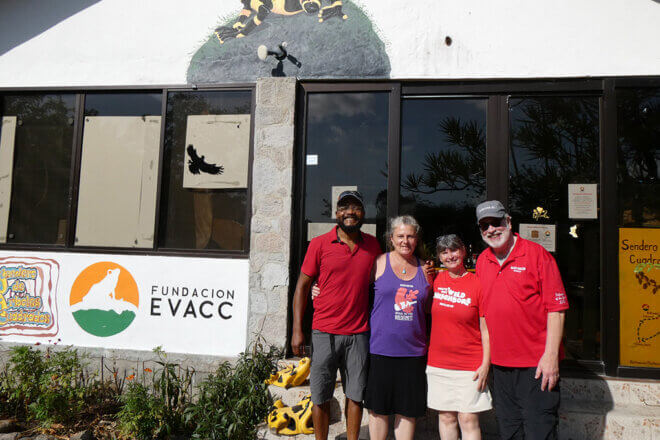

Share this article